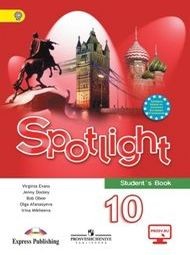
Учебник английского языка для 10 класса, автор – Ваулина, представляет собой увлекательный и структурированный подход к обучению школьников. В нем удачно сочетаются теоретический материал, упражнения для практики и интересные задания, способствующие развитию всех языковых навыков. Это пособие подходит как для самостоятельного изучения, так и для работы на уроках.
ГДЗ по Английскому Языку 10 Класс Модуль 6c Номер 12 Ваулина — Подробные Ответы
Завершите второе предложение так, чтобы оно означало то же самое, что и первое. Используйте от двух до пяти слов, включая слова, выделенные жирным шрифтом.
1. У нас не будет столика, если мы не забронируем его заранее.
2. Я думаю, что вы должны заказать ягненка.
3. Мясо было переварено, поэтому оно не было очень вкусным.
4. Мы не наслаждались нашим ужином, потому что ресторан был переполнен.
If we don’t make a reservation (если мы не сделаем бронирование)
If I were in your position, I would (если бы я был на твоем месте, я бы)
Would have been more flavorful (было бы более вкусным)
Hadn’t been so packed (не был таким переполненным)
. If we don’t make a reservation
Explanation: The phrase “if we don’t make a reservation” refers to the necessity of booking something in advance, like a table at a restaurant or tickets for an event. Without making a reservation, there’s a risk of not getting the desired spot, service, or availability.
Example sentence:
If we don’t make a reservation, we might not find a table at the restaurant.
(Если мы не сделаем бронирование, мы можем не найти столик в ресторане.)
Usage context: This phrase can be used when emphasizing the importance of planning ahead to avoid complications or disappointment.
2. If I were in your position, I would
Explanation: This is a conditional sentence in the second conditional form, expressing a hypothetical scenario. It’s used when offering advice or expressing what one would do in another person’s situation. The use of «were» instead of «was» is the correct form when expressing a hypothetical situation with «I» or «he/she.»
Example sentence:
If I were in your position, I would speak to the manager about the issue.
(Если бы я был на твоем месте, я бы поговорил с менеджером о проблеме.)
Usage context: This structure is commonly used to offer advice or show understanding of another person’s situation and is often used to suggest a course of action.
3. Would have been more flavorful
Explanation: “Would have been more flavorful” is a phrase that reflects a regret or missed opportunity in the past. It’s used to suggest that something could have had a better result if a certain action had been taken, usually referring to food, experiences, or other outcomes. This is a part of the third conditional, used to express hypothetical situations in the past.
Example sentence:
The soup would have been more flavorful if you had added more herbs.
(Суп был бы более вкусным, если бы ты добавил больше трав.)
Usage context: This phrase expresses how a situation in the past could have turned out differently if an action had been taken. It’s often used when talking about missed opportunities, mistakes, or lessons learned.
4. Hadn’t been so packed
Explanation: The phrase «hadn’t been so packed» refers to the condition of something (like a place or event) being overly crowded. It’s a past perfect construction that refers to an event or state in the past and is used to describe a situation where something was more crowded than expected.
Example sentence:
If the concert hadn’t been so packed, we would have gotten better seats.
(Если бы концерт не был так переполнен, мы бы сели на лучшие места.)
Usage context: This is commonly used when explaining why something didn’t go as planned or when expressing how a situation could have been more enjoyable or effective if the circumstances had been different.



Оставь свой отзыв 💬
Комментариев пока нет, будьте первым!